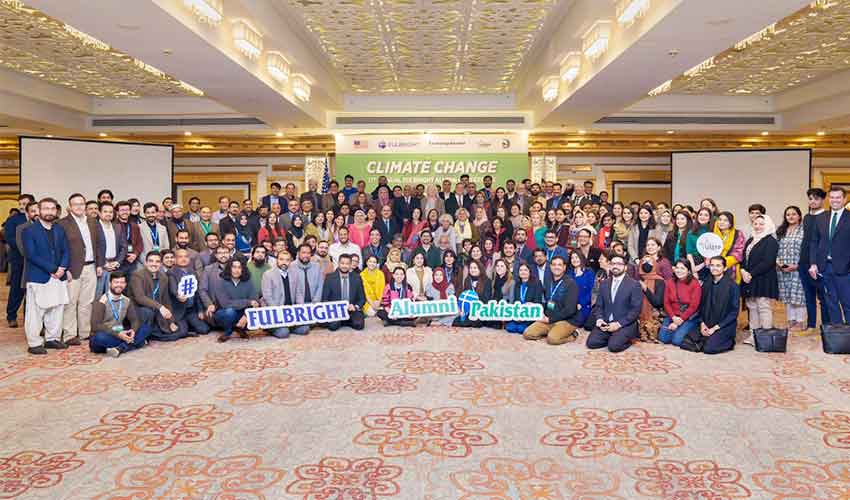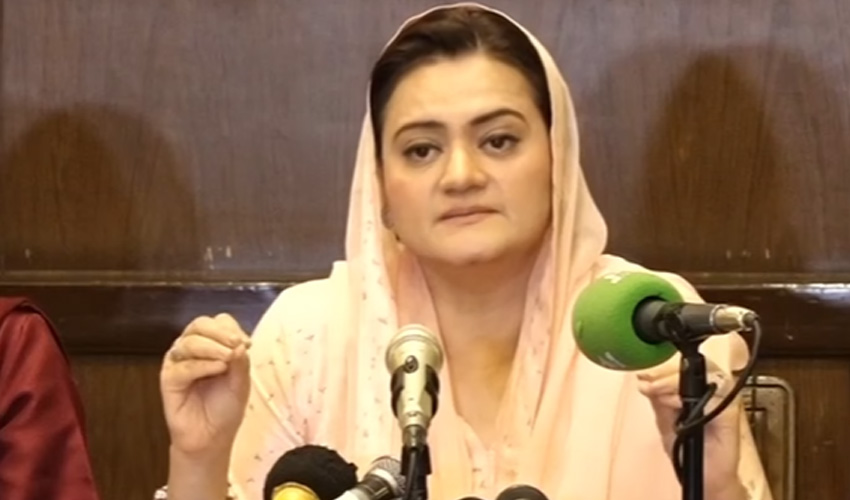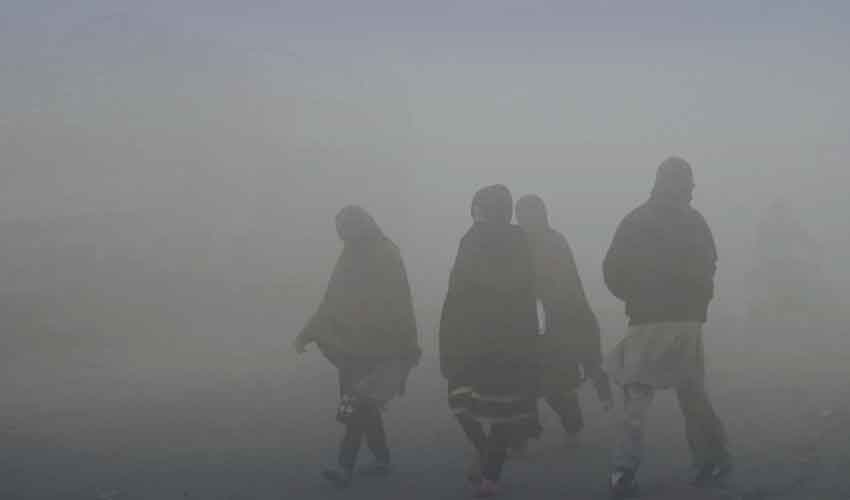Funded by the U.S. Mission to Pakistan and in collaboration with the Pakistan-U.S. Alumni Network (PUAN), the United States Educational Foundation in Pakistan (USEFP) organised the 17th Annual Fulbright Alumni Conference from January 12-14 on the theme of climate change.
Around 250 alumni of the Fulbright Program, most of whom have completed Master’s or PhD degrees in the United States, gathered in Islamabad to discuss the challenges of climate change and report on actions they and their organizations are taking to reduce its impact on communities across Pakistan.
“The United States invests in exchanges like the Fulbright Program because we know that no country can tackle seemingly intractable challenges – like climate change – alone. Exchange programs, and the Pakistan-U.S. Alumni Network, deepen people-to-people ties and provide opportunities for all of us to connect, to problem solve, and to make a positive difference together. PUAN members like you are making an impact here in Pakistan and around the world,” said U.S. Ambassador Donald Blome.
The keynote address was given by Senior Humphrey Fellow Dr. Amjad Saqib, Founder of the Akhuwat Foundation and winner of the prestigious Ramon Magsaysay Award in 2021.
Fulbright alumni highlighted their efforts to develop smart solutions to the climate crisis and learned from one another in a highly collaborative setting. From the role of education in addressing climate change to the importance of green business and urban planning in making cities more resilient, the alumni shared ideas and research that can help the government and private sector manage the crisis more effectively. The conference included seven panel discussions focusing on ecology, agriculture, climate action, and technology and concluded with a tour of Rawal Dam.
USEFP Executive Director Rita Akhtar welcomed the honored guests and participants, noting, "Nowhere in the world is the Fulbright Program having a greater impact than in Pakistan. The Fulbright Pakistan alumni community represents a diverse and dynamic pool of professionals contributing to the country’s socio-economic development, including low-income educational opportunities, disability inclusion, access to information, public libraries, district/provincial/federal administration, energy, transportation, banking and finance, and health. Everywhere you go in Pakistan, whether in terms of geography or economic sector, you will find Fulbright alumni leading and contributing to progressive change.”
The Fulbright Program in Pakistan is funded by the United States government. Since 2005, Pakistan has had the world’s largest Fulbright foreign student program. More than half of these more than 3,000 alumni are women, and they represent every province and region of Pakistan.
USEFP is a bi-national commission established in 1950 by the governments of the United States and Pakistan. Since its inception, more than 8,800 Pakistanis and 945 Americans have participated in USEFP-managed exchange programs. Its mission is to promote mutual understanding between the people of the United States and the people of Pakistan through exchange programs.


























